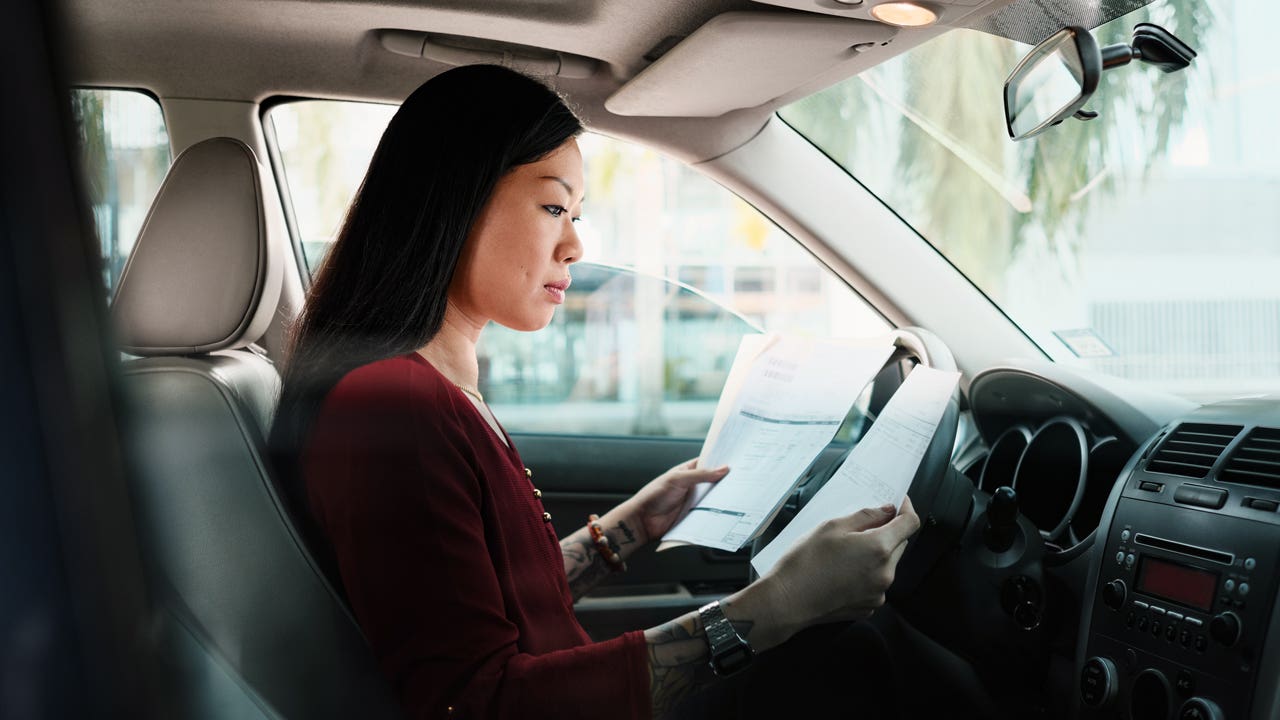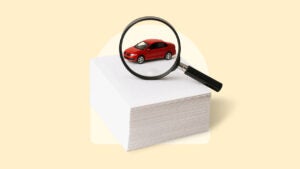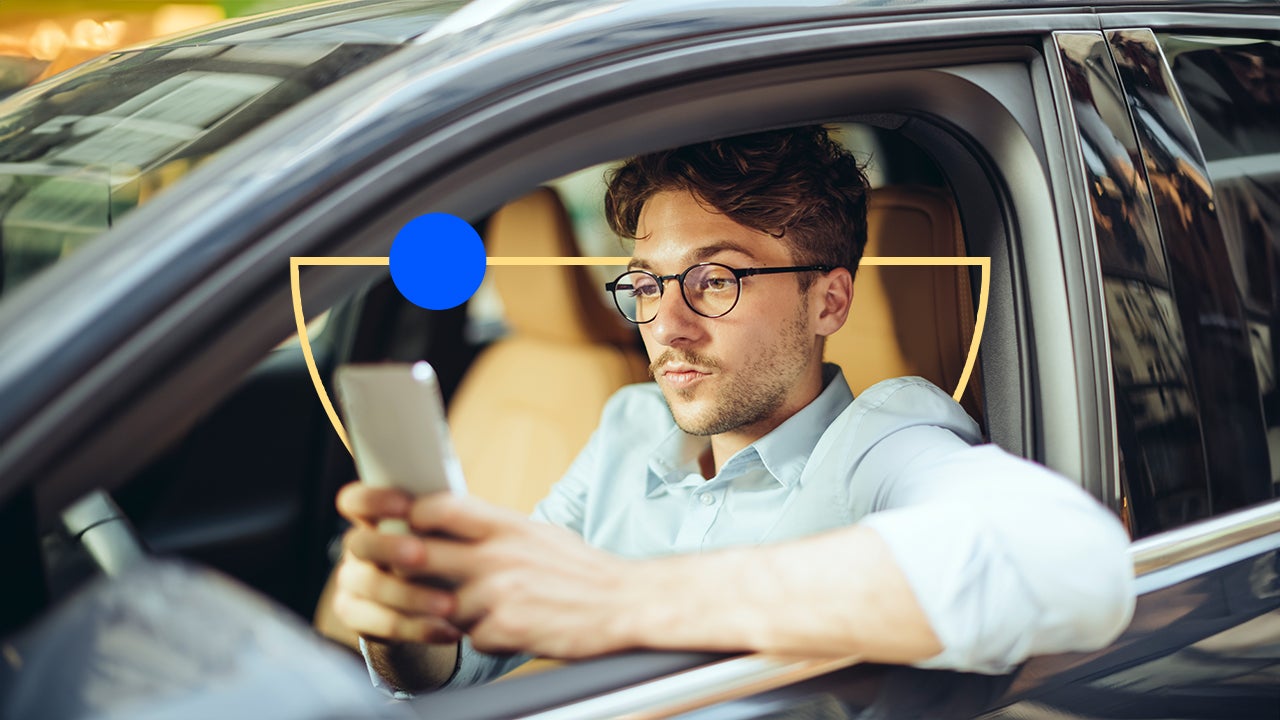What is a car insurance policy number?




Your insurance policy number is like your coverage’s unique fingerprint. It can give you access to your insurance details, helps you file claims and serves as proof of insurance. Whether you’re an experienced driver or new to the road, knowing where to find this number and how to use it is essential for managing your policy and getting support when you need it.
What is an insurance policy number?
At its core, a car insurance policy number serves as your gateway to coverage. It’s your personal identifier, linking you directly to your specific insurance plan. Whether you’re dealing with the aftermath of a fender bender, stopped for a routine traffic check or simply adjusting your coverage details, your policy number ensures your insurer can swiftly access and manage your information.
Typically appearing as a sequence of nine to 13 characters — usually a mix of numbers, though sometimes letters may be included — this identifier distinguishes your policy from the countless others your car insurance company manages.
While memorizing your policy number isn’t necessary, having quick access to it can prove invaluable in real-world situations. And should you ever misplace it? No need to worry. A brief conversation with your insurance agent or a quick login to your online account is usually all it takes to retrieve it.
When do you need your car insurance policy number?
Having your policy number readily available can make all the difference, whether you’re dealing with the stress of an accident or simply handling day-to-day insurance matters. Below are some common moments when having your policy number on hand can help:
- After an accident: Having your policy number readily available is especially important after a crash. In stressful moments, it’s easy to forget details, so keeping your insurance card — with your policy number — on hand is essential. You’ll likely need to share this information with other drivers involved and possibly include it in a police report, depending on the situation.
- During a traffic stop: Most states require drivers to carry proof of insurance, and your policy number is a fundamental part of that documentation. Having your insurance card (whether physical or digital) readily accessible can transform a potentially stressful traffic stop into a more straightforward interaction.
- When contacting your insurer: While your identity can usually be verified through other means, providing your policy number often makes the process faster and more efficient when speaking with your auto insurer.
- Adding or removing drivers or vehicles from your policy: Life changes often require policy updates, whether you’re adding a new teenage driver or upgrading to a different vehicle. Your policy number ensures these important modifications are accurately reflected on your account, preventing any coverage gaps or confusion.
- Dealing with vehicle registration or renewals: Many states require proof of insurance during vehicle registration or renewal processes. Your policy number will help verify your compliance with state insurance requirements.
How to find your car insurance policy number
Your policy number is readily available in several places. Here’s where to track it down:
- Check your insurance card: Pop open your glove box or wallet and grab your insurance card (assuming you keep a physical copy). The policy number is usually up near the top, noted by “Policy #” or “Policy ID.”
- Review your bills: Your policy number appears on every bill and payment confirmation. Be mindful that sometimes a separate billing account number appears that looks similar but isn’t quite what you’re after.
- Scan your declarations page: This document, provided when you first purchased your policy (and each time you renew), offers a detailed breakdown of your coverage. Your policy number is typically listed at the top, above the coverage details and dollar amounts.
- Use the app or website: Most insurers offer a mobile app with access to your policy information and management tools. If you haven’t installed it, you can usually log in through the insurer’s website. Once logged in, you should be able to easily find your policy number.
- Make a quick call: Drawing a blank? No problem. Your insurance agent or company’s customer service team can pull up your policy number in seconds. They’ll just need to verify you’re you first. You could be asked to provide your birthdate, Social Security number or phone number.
How to find someone else’s car insurance policy number
Sometimes, you need another driver’s insurance details, and it’s not always as simple as exchanging information at the scene. While trading policy numbers after a fender bender is standard practice (and helps everyone’s claims process run smoothly), life doesn’t always work out that neatly. Maybe the other driver was hesitant to share their information, or perhaps those hastily scribbled details got lost in the shuffle of post-accident paperwork. Don’t worry — you’ve got options. Understanding how to track down this information can make the difference between a smooth claims process and unnecessary headaches down the road.
Here are a few to find insurance policy numbers:
- File a police report: If you have a legal cause, like being the victim of a hit-and-run, you may file a police report and request to be informed of whether or not the vehicle was insured. This represents a valid reason because, in this case, the insurance of that vehicle may be liable for damages done to yours.
- Contact the Department of Motor Vehicles (DMV): If you have a valid reason to know whether a car is insured, but it isn’t a police matter, you can sometimes get that information from the DMV. The DMV will want to know your reasons and will need as much information on the vehicle as you can provide. If you know the car’s vehicle identification number (VIN), the process may go much smoother. It’s important to note that access can vary by state and that the Driver Privacy Protection Act typically restricts access unless you can prove you were in an accident with the other driver.
Frequently asked questions
Why we ask for feedback Your feedback helps us improve our content and services. It takes less than a minute to complete.
Your responses are anonymous and will only be used for improving our website.
You may also like

How do deductibles impact your car insurance?

Tips for first-time car insurance buyers

How to read an auto insurance policy

